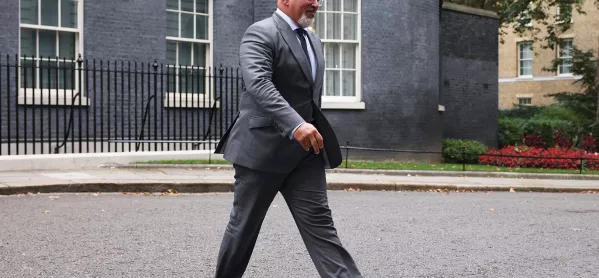Nadhim Zahawi has asked headteachers to tell the Department for Education if the fuel crisis is causing disruption to their school, according to union leaders.
Geoff Barton, the general secretary of the Association of School and College Leaders, has held talks with the education secretary on the issue after highlighting cases where teachers and pupils have been unable to get to school.
In a video message to ASCL members, Mr Barton highlighted examples of disruption that difficulties buying fuel were causing to schools and their staff.
Fuel crisis: Call to prioritise teachers for petrol
Heads: Union leaders meet with Ofsted over inspection concerns
Related: Teacher shortages could force return to remote learning
He said: “You’re saying to us there are three things that are happening in some cases - not many but in some cases. There are some young people who are not able to get to school.
“In one case, for example, school buses, trapped up on the forecourt trying to fill up and not able to get out and therefore not picking young people up in time to get them to school so those young people miss out. That is an extreme example but nevertheless you’ve shared that with us.
The fuel crisis affecting schools
“There are some examples where staff are struggling to get in and some examples where catering and other provisions have been affected.”
Mr Barton said this had been raised with the DfE and he had received a swift response with a conversation with the education secretary.
The union leader said Mr Zahawi was “largely reassuring” and said the government thought the issues were fairly sporadic.
But he added that the education secretary had said that “if your members would like to share some specific examples of where it is affecting the learning of young people, affecting the ability of staff to be able to get into schools, to please pass those on.”
In the video message to members, Mr Barton urged members to come forward with examples of disruption that would then be passed on to the Department for Education.
A government spokesperson said: “The best place for children and young people to be is in school with their teachers and friends. We are aware that some petrol stations have had to temporarily close in response to localised spikes in demand, but this is not in response to a national shortage, as there is plenty of fuel at refineries and terminals.
“The government recently announced a package of measures announced to help ease temporary supply chain pressures, including an immediate increase in HGV testing, short-term visas for HGV drivers and new skills bootcamps to train up to 3,000 more people to become HGV drivers.
“The government will continue to monitor the situation and work with industry to minimise disruption to UK motorists.”
There have been warnings that pressure on petrol stations is likely to continue.
The Petrol Retailers Association (PRA) - representing independent filling stations - warned today the queues were set to continue unless supplies increased.
Executive director Gordon Balmer said the independents had been particularly hard hit, with one in four reporting they had run dry.
“Whilst the situation is similar to recent days, there are signs that it is improving, but far too slowly,” he said.
“Until independents start getting frequent supplies, we will continue to see long queues at forecourts.”




